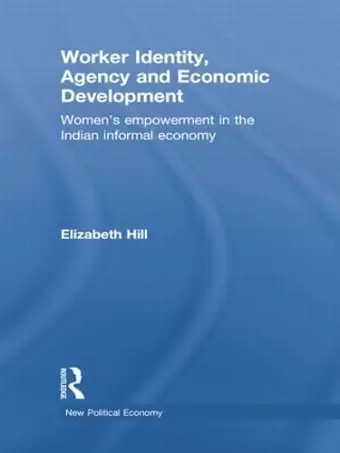Worker Identity, Agency and Economic Development
Women's empowerment in the Indian informal economy
Format:Paperback
Publisher:Taylor & Francis Ltd
Published:23rd Jun '14
Currently unavailable, and unfortunately no date known when it will be back
This paperback is available in another edition too:
- Hardback£155.00(9780415566094)

More than nine out of every ten working women in India are employed in the informal economy, unprotected by labour laws and excluded from basic forms of social security. They work as daily labourers in the fields, small producers and industrial outworkers in their own homes and as vendors on the streets. These workers typically receive very low wages and experience extreme forms of social, economic and political marginalisation. This book examines what types of interventions can improve the well-being of women working in the Indian informal economy. Using the case study of the Self Employed Women’s Association, Worker Identity, Agency and Economic Development argues that work-life reform for informal women workers has moral and social dimensions, as well as economic.
Drawing on the work of social philosopher Axel Honneth, the book argues that worker agency is critical to the process of work-life reform in the informal economy. Using empirical data collected amongst SEWA members the study shows that there is a positive and developmental relationship between a worker’s identity, or psychological integrity, and her actual capacity to engage in the political economy for constructive change. The study shows that membership based organisations can promote the social foundations of recognition and respect that are critical to identity and agency, as well as provide worker’s with real opportunities to develop alternative non-exploitative economic institutions that deliver improved wages and social security. But in organizing informal workers for collective action the existing distribution of power and wealth, as well as gender privilege are challenged. The result is social conflict and sometimes violence. Conflict of this nature is endemic to the development process, but is often overlooked in development literature and policy design.
The book will be of interest to development scholars and practitioners, as well as those interested in the dynamics of women’s empowerment and socio-economic change for informal economy workers.
'In the developing world, a large share of workers – especially of women workers – is engaged in the informal economy, unprotected by labour laws and excluded from basic forms of social protection. In India, nine out of every ten working women are employed in the informal economy. This timely and important book begins by unraveling the historical debates on the informal economy and then examines the labour-focused approach of the Self-Employed Women’s Association of India: a trade union of more than 1.2 million working poor women in the informal economy. Drawing on the interventions of SEWA and the experiences of its members, the book argues that there is a positive developmental relationship between a worker’s identity and agency as a worker and her work-life status and that being a member of a membership-based worker’s organization, such as SEWA, helps to promote worker identity and agency. This book should be considered essential reading for development practitioners and those interested in economic rights and women’s empowerment' - Marty Chen, Harvard University, USA
ISBN: 9781138805392
Dimensions: unknown
Weight: 317g
208 pages